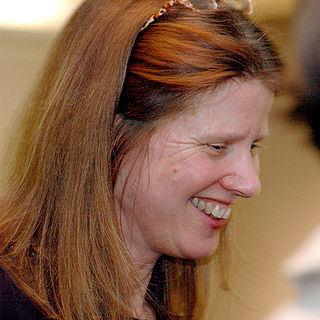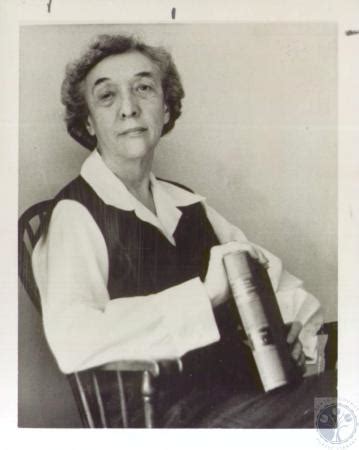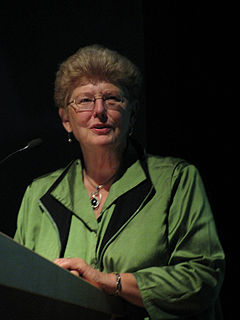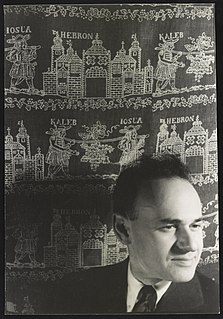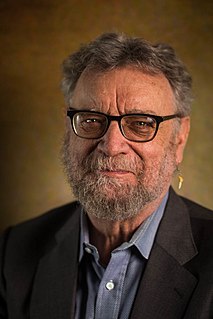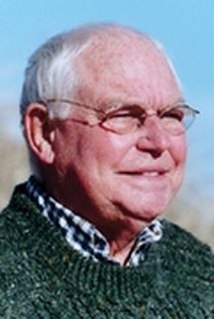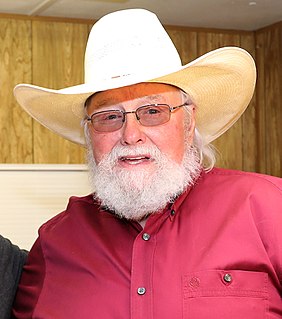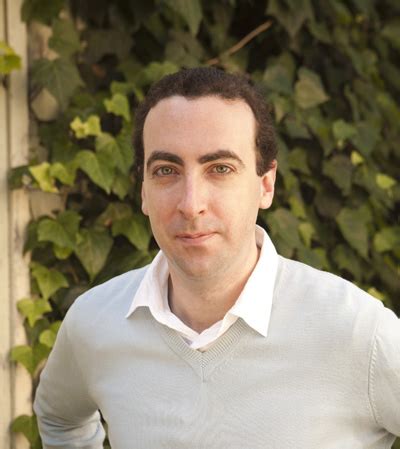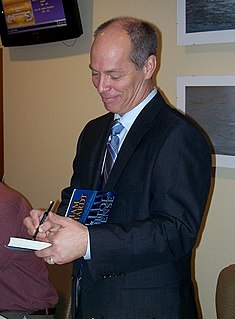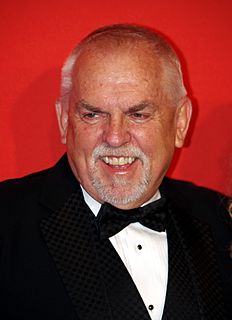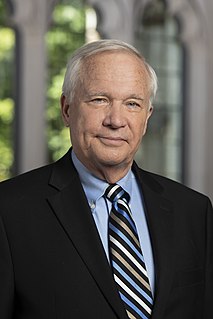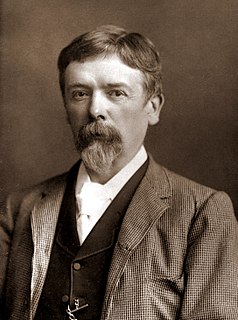Top 276 Dickens Quotes & Sayings - Page 5
Explore popular Dickens quotes.
Last updated on December 4, 2024.
But the novels of women were not affected only by the necessarily narrow range of the writer's experience. They showed, at least in the nineteenth century, another characteristic which may be traced to the writer's sex. In Middlemarch and in Jane Eyre we are conscious not merely of the writer's character, as we are conscious of the character of Charles Dickens, but we are conscious of a woman's presence of someone resenting the treatment of her sex and pleading for its rights.
I've been in the entertainment industry since I was six-years-old ... As Charles Dickens says, 'It's been the best of times, the worst of times.' But I would not change my career ... While some have made deliberate attempts to hurt me, I take it in stride because I have a loving family, a strong faith and wonderful friends and fans who have, and continue, to support me.
I looked at the world of books and just went, Oh my gosh, if I'm writing novels, I'm on the same shelves as Jane Austen and Charles Dickens and Petronius - whereas with comics, they've only been doing them for a hundred years, and there's stuff that nobody's done before. I think I'll go off and do some of the stuff no one's ever done before.
I had read [Charles] Dickens's novels were often published serially. I thought it would be fun to write a book, just sitting down and writing a chapter every day, not knowing what would happen next. So that's how I wrote the first draft. And then of course I had to go back and make sure everything worked and change things.
Old Flossie settle down on the other side of What-the-Dickens and dragged some handiwork out of a sack. She armed herself with two thorns shaped into knitting needles. A wodge of curlicued metallic scrubbing pad supplied the threat. 'I knit handcuffs as a hobby,' explained Old Flossie happily, and set to work. 'Idle hands get up to no good, so I like to be prepared in case I meet up with any idle hands.
William Shakespeare was the most remarkable storyteller that the world has ever known. Homer told of adventure and men at war, Sophocles and Tolstoy told of tragedies and of people in trouble. Terence and Mark Twain told cosmic stories, Dickens told melodramatic ones, Plutarch told histories and Hans Christian Andersen told fairy tales. But Shakespeare told every kind of story – comedy, tragedy, history, melodrama, adventure, love stories and fairy tales – and each of them so well that they have become immortal. In all the world of storytelling he has become the greatest name.
I was a promiscuous reader. I loved Nancy Drew books and Tom Swift - never the Hardy Boys - but I also read Dumas, Dickens, Poe, Conan Doyle, and Cornelius Ryan's war books. As to favorite character: I'm torn between Nancy, on whom I had an unseemly crush, and Edmond Dantes, the Count of Monte Cristo.
I've been reading and researching various aspects of history - Dickens' London, Nelson's sea battles, Magellan's nautical explorations, the weapons and battles and key figures of the American Civil War - for most of my life. I pick up a book here or there or see a documentary or talk with an expert in the subject, and my curiosity about the one area of study and discovery always leads to another.
Deep attention, the cognitive style traditionally associated with the humanities, is characterized by concentrating on a single object for long periods (say, a novel by Dickens), ignoring outside stimuli while so engaged, preferring a single information stream, and having a high tolerance for long focus times. Hyper attention is characterized by switching focus rapidly among different tasks, preferring multiple information streams, seeking a high level of stimulation, and having a low tolerance for boredom.
In spite of their obvious differences, folk art and popular art have much in common; they are easy to understand, they are romantic, patriotic, conventionally moral, and they are held in deep affection by those who are suspicious of the great arts. Popular artists can be serious, like Frederick Remington, or trivial, like Charles Dana Gibson; they can be men of genius like Chaplin or men of talent like Harold Lloyd; they can be as uni versal as Dickens or as parochial as E.P. Roe; one thing common to all of them is the power to communicate directly with everyone.
Gene Wolfe is the greatest writer in the English language alive today. Let me repeat that: Gene Wolfe is the greatest writer in the English language alive today! I mean it. Shakespeare was a better stylist, Melville was more important to American letters, and Charles Dickens had a defter hand at creating characters. But among living writers, there is nobody who can even approach Gene Wolfe for brilliance of prose, clarity of thought, and depth in meaning
The writers I care about most and never grow tired of are: Shakespeare, Swift, Fielding, Dickens, Charles Reade, Flaubert and, among modern writers, James Joyce, T. S. Eliot and D. H. Lawrence. But I believe the modern writer who has influenced me most is Somerset Maugham, whom I admire immensely for his power of telling a story straightforwardly and without frills.
I started reading Dickens when I was about 12, and I particularly liked all of the orphan books. I always liked books about young people who are left on their own with the world, and the four children's books I've written feature that very thing: children that are abandoned by their families or running away from their families or ignored by their families and having to grow up quicker than they should, like David Copperfield - having to be the hero of their own story.
I am not attracted to writers by style. What style do Dickens, Grass, and Vonnegut have in common? How silly! I am attracted to what makes them angry, what makes them passionate, what outrages them, what they applaud and find sympathetic in human beings and what they detest about human beings, too. They are writers of great emotional range.
Born Losers is a beautiful piece of writing. Scott Sandage is history's Dickens; his bleak house, the late nineteenth century world of almost anonymous American men who failed. With wit and sympathy, Sandage illuminates the grey world of credit evaluation, a little studied smothering arm of capitalism. This is history as it should be, a work of art exploring the social cost of our past.
I never understood people who said their greatest fear was public speaking, or spiders, or any of the other minor terrors. How could you fear anything more than death? Everything else offered moments of escape: a paralyzed man could still read Dickens; a man in the grips of dementia might have flashes of the must absurd beauty.
Dickens was born in 1812 and died in 1870, having produced fifteen novels, many of which can confidently be called great, as well as having accomplished outstanding work in activities into which his insatiable need to expend his vast energies - to achieve, to prevail - carried him: journalism, editing, acting, social reform.
Dickens is a much misunderstood and mis-approached writer, in that he tends to be read, particularly in the twentieth century, as a social commentator - like the great Victorians, a realist in his way. But he isn't at all like that. His genre is actually more like a fairy tale - weird transformations, long voyages from which people come back altered, parental mysteries, semi-magical twists.
Little Jimmy Dickens has long been a musical hero of mine and one of the finest entertainers to ever step on any stage. I was deeply honored to call him a friend and will always remember the time I got to spend with him. The music world has lost one of our greatest treasures. Rest in peace, my little friend. You were loved by so many of us!
You've probably heard about the theory of steam-engine time - that even after the steam engine had been invented, it had to wait until people were ready to make use of it. The same thing happens in literary circles. The truth is, I'm not terribly interested in Victorian times; I'm interested in Victorian writers. I'm interested in most eras of history, but not the Victorian Era especially. I was interested in the John Franklin Expedition. I was interested in these last five weird years of Dickens' life. And I just have to take the age that comes with all that when I write about it.
Writing a novel- actually picking the words and filling in paragraphs- is a tremendous pain in the ass. Now that TV's so good and the Internet is an endless forest of distraction, it's damn near impossible. That should be taken into account when ranking the all-time greats. Somebody like Charles Dickens, for example, who had nothing better to do except eat mutton and attend public hangings, should get very little credit.
I think, about the distinction between fiction and nonfiction. Fiction is not really about anything: it is what it is. But nonfiction - and you see this particularly with something like the BBC Samuel Johnson Prize for Non-Fiction - nonfiction we define in relation to what it's about. So, Stalingrad by Antony Beevor. It's "about" Stalingrad. Or, here's a book by Claire Tomalin: it's "about" Charles Dickens.
In fact I don't think of literature, or music, or any art form as having a nationality. Where you're born is simply an accident of fate. I don't see why I shouldn't be more interested in say, Dickens, than in an author from Barcelona simply because I wasn't born in the UK. I do not have an ethno-centric view of things, much less of literature. Books hold no passports. There's only one true literary tradition: the human.
Few literary depictions of the 1906 San Francisco earthquake match the intensity and visceral power of those in Flacco's gripping first novel. The author's screenwriting talent shines in this story of the earth's destructive power and humanity's moral depravity. The emerging maniacal personality, revealed in increasingly gruesome and venomous detail, rivals the Ripper.Dickens meets Hannibal Lecter. Brace yourself.
It was the last generation of writers [ the Cheers] that had grown up reading books instead of watching TV. So you weren't getting anything that was derivative of I Love Lucy or Happy Days. You were getting real characters [like those] they read in P.G. Wodehouse or Dickens or somewhere along the line, because they had all grown up with a love of literature.
As a former English major, I am a sitting duck for Gift Books, and in the past few years I've gotten Dickens, Thackeray, Smollet, Richardson, Emerson, Keats, Boswell and the Brontes, all of them Great, none of them ever read by me, all of them now on a shelf, looking at me and making me feel guilty.
I promise to charm the dickens out of him,' said Will, sitting up and readjusting his crushed hat. 'I shall charm him with such force that when I am done, he will be left lying limply on the ground, trying to remember his own name.' 'The man's eighty-nine', muttered Jem. 'He may well have the problem anyway.
At the school I attended, the clergyman who ran the cathedral school in Shanghai would give lines to the boys as a punishment. They expected you to copy out, say, 20 or 30 pages from one of the school texts. But I found that rather than laboriously copying out something from a novel by Charles Dickens, it was easier if I made it up myself.
I doubt if Dickens did, especially his women-his pretty women-Mrs. Dombey, Florence, Dora, Agnes, Ruth Pinch, Kate Nickleby, little Emily-we know them all through Hablot Browne alone-and none of them present any very marked physical characteristics. They are sweet and graceful, neither tall nor short; they have a pretty droop in their shoulders, and are very ladylike; sometimes they wear ringlets, sometimes not, and each would do very easily for the other.
You think your pain and your heartbreak are unprecedented in the history of the world, but then you read. It was Dostoevsky and Dickens who taught me that the things that tormented me most were the very things that connected me with all the people who were alive, or who ever had been alive. Only if we face these open wounds in ourselves can we understand them in other people.
Attention spans are changing. It's very noticeable. I am very aware that the kind of books I read in my childhood kids now won't be able to read. I was reading Kipling and PG Wodehouse and Shakespeare at the age of 11. The kind of description and detail I read I would not put in my books. I don't know how much you can fight that because you want children to read. So I pack in excitement and plot and illustrations and have a cliffhanger every chapter. Charles Dickens was doing cliffhangers way back when. But even with all the excitement you have to make children care about the characters.
And I knew in my bones that Emily Dickinson wouldn't have written even one poem if she'd had two howling babies, a husband bent on jamming another one into her, a house to run, a garden to tend, three cows to milk, twenty chickens to feed, and four hired hands to cook for. I knew then why they didn't marry. Emily and Jane and Louisa. I knew and it scared me. I also knew what being lonely was and I didn't want to be lonely my whole life. I didn't want to give up on my words. I didn't want to choose one over the other. Mark Twain didn't have to. Charles Dickens didn't.
She had lolled about for three years at Girton with the kind of books she could equally have read at home--Jane Austen, Dickens, Conrad, all in the library downstairs, in complete sets. How had that pursuit, reading the novels that others took as their leisure, let her think she was superior to anyone else?
150 years ago in [Charles] Dickens's time there was at least a sense of craft. So some of the things people had inside of them, they had the possibility of expressing in the making of things - even in a daily way with their clothes or their food. People made a good deal of both themselves. Now our daily lives are almost all consumption. Craft plays a tiny role.



